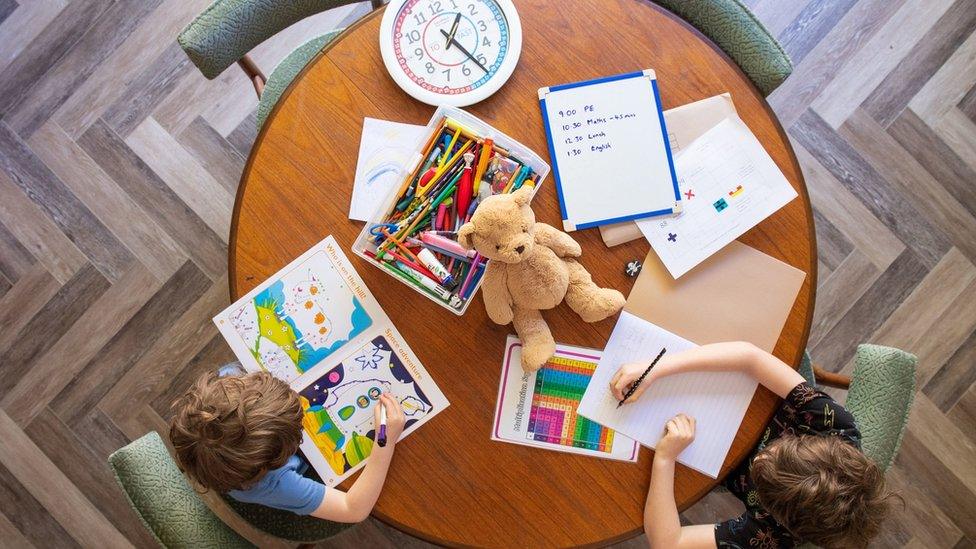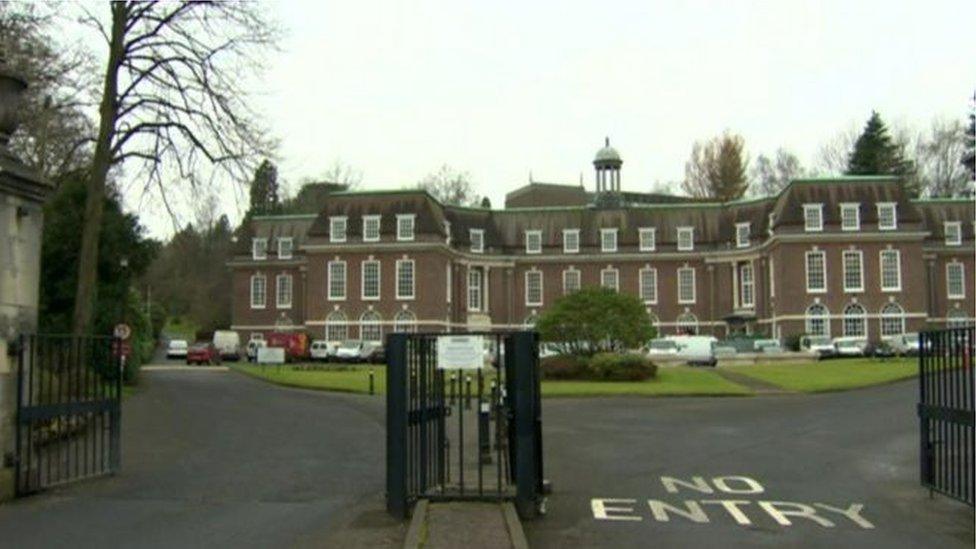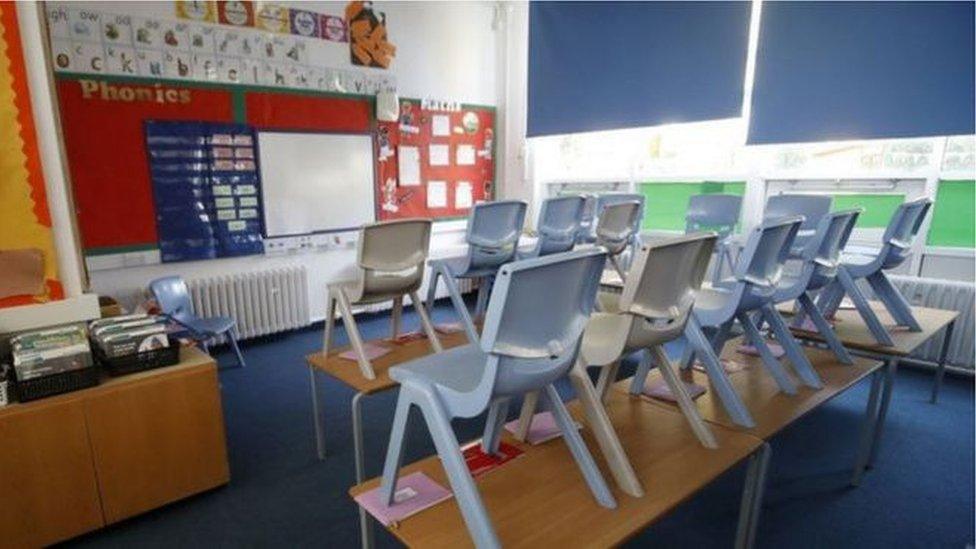Coronavirus: Parents 'burnt out' by home-schooling
- Published

Many parents have felt "overwhelmed, very stressed, exhausted and burnt out" by the experience of homeschooling, according to a study carried out by Stranmillis University College.
The study was based on a survey of more than 2,000 parents and carers.
Dr Noel Purdy, from Stranmillis, gave evidence to Stormont's Education Committee about remote learning on Wednesday.
He said "a minority of families" had thrived, but many others had struggled.
The vast majority of pupils have not been able to attend schools since March.
The Education and Training Inspectorate (ETI) previously said a significant number of pupils had not taken part in remote learning.
Questioned by assembly members (MLAs) on the committee, Dr Purdy said many families had to share devices and some pupils had to try to complete work on their mobile phones.
He said key workers and parents who were working from home said they had faced particular difficulties in homeschooling their children.
'Burnt out'
"Many parents felt overwhelmed, very stressed, exhausted, burnt out by the whole experience," he said.
"There were issues around internet connectivity, particularly in rural areas where teachers as well as children are going to struggle to access resources."
Dr Purdy said he was concerned that existing inequalities in education were likely to increase due to the fact children had not been in class.
He also said that the emotional health and wellbeing of pupils would have to be the focus when children returned to school.
"The priority has to be reintroducing children into a formal school environment, re-establishing routines and prioritising their mental health," he said.

Stranmillis University College carried out the study on home-schooling based on a survey of parents and carers
"Only then can you think about readiness to learn and having children who will be in a position to be able to engage actively and positively with learning.
"Many young children, if they haven't got siblings particularly in the house, have really been quite isolated in terms of social interaction with their peers over the last three months."
A number of MLAs also expressed concerns about aspects of "blended" learning - a mixture of inschool and remote learning.
Sinn Féin MLA Karen Mullan said more planning was needed if pupils were going to be taught remotely.
"What has been in the past term can't be what it is going to be going forward in September," she said.
Ulster Unionist MLA Robbie Butler said he had some "serious concerns" about online learning and the impact of not being in school for children with a range of special educational needs (SEN), including autism.
Dr Purdy said some children with SEN had thrived at home but many families were at their "wits end".
"All the support networks were removed almost overnight for those parents not just in terms of school, but in terms of respite care and therapeutic interventions and everything was just removed overnight," he said.
"So of course many children struggled with that and the parents of course as well."

Schools have been closed since March
The SDLP's Justin McNulty said he was concerned many at-risk children had been "left to suffer in silence during this pandemic" as they were not in school.
Dr Bronagh McKee from Stranmillis University College replied that was a "massive concern".
"Social workers across Northern Ireland in various trusts have all raised the same concern, that during the lockdown particularly children who are already on a child protection register or are already involved in intervention services, those services have had to stop for many children," she said.
"Teachers have not been able to pick up on concerns that they might have seen in everyday classroom practice."
Dr Purdy did admit that there were some limitations to the Stranmillis study.
For instance, the survey was carried out online so parents with limited or no online access were likely to be underrepresented.
He also said that parents who were under pressure with work were less likely to have taken part in the study.